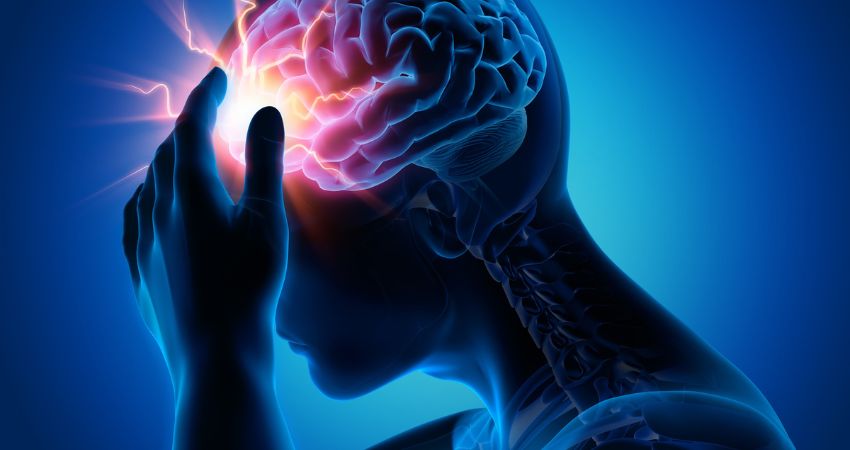Understanding Traumatic Brain Injury Symptoms And Recovery: Traumatic brain injury (TBI) is a significant public health concern, with millions of people worldwide experiencing its debilitating effects each year. From concussions to severe brain trauma, TBIs can result from various causes, including accidents, falls, sports injuries, and military combat. Understanding the symptoms and recovery process of traumatic brain injury is essential for effective management and rehabilitation. In this article, we delve into the complexities of TBI, exploring its symptoms, recovery trajectories, and the importance of comprehensive care and support.
Traumatic Brain Injury Symptoms And Recovery
Traumatic brain injury (TBI) means different types of damage to the brain. This damage can be mild, like a bump on the head, or severe, like a serious accident. When someone gets a mild TBI, it’s often called a concussion. This can make them feel dizzy, confused, or have a headache. They might also have trouble remembering things for a short time.
But when someone has a more serious TBI, it can cause big problems. It might affect how they think, move, and feel for a long time. They could have trouble remembering things, doing physical activities, or managing their emotions. This can make it hard for them to do things on their own and take part in everyday life.
Imagine you’re playing a game of soccer with your friends. Suddenly, you collide with another player and hit your head hard on the ground. This impact can cause a traumatic brain injury, or TBI. TBIs can happen in many different ways, such as falling, getting into a car accident, or being hit on the head.
When someone gets a mild TBI, like a concussion from our soccer game, they might not even realize they’re hurt at first. They could feel a bit dizzy or confused, or they might have a headache. It might seem like these symptoms will go away on their own, but sometimes they can linger for a while.
On the other hand, if someone experiences a more severe TBI, the effects can be much more serious. This could happen in a major car crash or a bad fall. In these cases, the brain can suffer significant damage. This damage can lead to long-term problems with thinking, moving, and feeling.
One of the most challenging aspects of a moderate to severe TBI is its impact on cognition. That means how we think and understand things. Someone with a severe TBI might struggle to remember things, concentrate, or solve problems. They might have trouble understanding what others are saying or expressing themselves clearly.
Recognizing Common Symptoms

The symptoms of traumatic brain injury can vary widely depending on the severity of the injury and the areas of the brain affected. Physical symptoms may include headache, nausea, dizziness, fatigue, sensory disturbances, and sleep disturbances. Cognitive symptoms may manifest as memory problems, difficulty concentrating, slowed thinking, and impaired judgment. Emotional symptoms such as irritability, anxiety, depression, and mood swings are also common among individuals with TBI. Recognizing these symptoms is crucial for early detection and intervention to prevent further complications.
Understanding the Recovery Process
Recovery from traumatic brain injury is a complex and multifaceted process that varies from person to person. In cases of mild TBI, symptoms may resolve spontaneously within a few days to weeks with rest and symptom management. However, recovery from moderate to severe TBI may require intensive medical intervention, rehabilitation, and long-term support. The recovery trajectory can be influenced by factors such as the severity of the injury, age, overall health, pre-existing conditions, and access to resources and support services.
Multidisciplinary Rehabilitation Approaches
Effective rehabilitation following traumatic brain injury requires a multidisciplinary approach that addresses the diverse needs of individuals across physical, cognitive, emotional, and social domains. Rehabilitation programs may include physical therapy to improve strength, balance, and mobility; occupational therapy to regain skills for daily living; speech therapy to address communication and swallowing difficulties; and cognitive therapy to address memory, attention, and problem-solving deficits. Psychosocial support and counseling are also essential components of rehabilitation to help individuals cope with emotional and behavioral challenges.
Supporting Cognitive Rehabilitation

Cognitive rehabilitation plays a crucial role in the recovery process for individuals with traumatic brain injury, helping them regain cognitive abilities and functional independence. Cognitive rehabilitation techniques may include memory training, attentional exercises, problem-solving tasks, and compensatory strategies to manage cognitive deficits. Assistive technologies and adaptive strategies such as calendars, reminders, and smartphone apps can also support cognitive functioning and enhance daily functioning.
Promoting Physical and Functional Recovery
Physical rehabilitation aims to optimize physical function, mobility, and independence following traumatic brain injury. This may involve exercises to improve strength, coordination, and balance; gait training to enhance walking ability; and activities of daily living (ADL) training to regain skills for self-care and household tasks. Assistive devices such as mobility aids, orthotics, and adaptive equipment may be prescribed to facilitate movement and support functional independence.
Addressing Emotional and Psychosocial Needs
Emotional and psychosocial support is essential for individuals coping with the emotional impact of traumatic brain injury on themselves and their families. Counseling, psychotherapy, and support groups provide a safe space for individuals to express their feelings, process their experiences, and learn coping skills to manage stress, anxiety, depression, and other emotional challenges. Family education and support services are also vital for helping caregivers navigate the complexities of caring for a loved one with TBI and promoting resilience and well-being within the family unit.
Fostering Long-Term Recovery and Quality of Life
In conclusion, understanding traumatic brain injury symptoms and recovery is essential for providing comprehensive care and support to individuals affected by this complex condition. By recognizing the diverse range of symptoms and addressing the multifaceted needs of individuals across physical, cognitive, emotional, and social domains, healthcare providers can help facilitate optimal recovery and promote quality of life for survivors of traumatic brain injury. As we continue to advance our understanding of TBI and refine our approaches to treatment and rehabilitation, we can offer hope and healing to those affected by this challenging condition.



